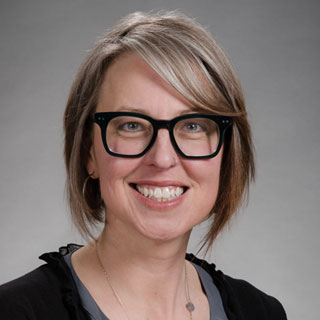October 20, 2020
CREATE Associate Director Heather Feldner and her research team have been awarded a pilot research grant from the newly founded NIH Pediatric Rehabilitation Resource Center (C-PROGRESS) to study early mobility technology.

The team, one of only three selected across the country, includes Sam Logan, an associate professor at Oregon State University, and Lisa Kenyon, a professor at Grand Valley State University.
Study Details: The use of powered mobility devices for young children with cerebral palsy (CP) has been gaining traction. Evidence shows that the use of powered mobility at young ages complements (rather than detracts from) other interventions focused on more traditionally viewed mobility skills such as crawling and walking, as well as broadens accessible participation and experiences for children and families.

Heather will lead the multi-site team of investigators in collecting preliminary data to investigate device use patterns, caregiver perceptions, and developmental outcomes of children with CP after introduction of two forms of early powered mobility technologies: commercial (the Permobil® Explorer Mini) and DIY (a Go Baby Go modified ride-on toy car). As FDA clearance for the Explorer Mini was just received in March of 2020, this is the first opportunity to provide key data on the integration and use of the device in the home and community, and it represents the first opportunity to compare the novel device with a modified ride-on car, which has also been customized to support early self-initiated mobility in a socially inviting way.
Why it matters: Research comparing these devices in natural environments can add critical data to the evidence supporting early powered mobility for children with CP as a part of a multimodal mobility approach to care across the lifespan. It also presents a unique opportunity to further engage in critical discussion of facilitators and barriers to mobility and access for disabled children and families.
Learn more: